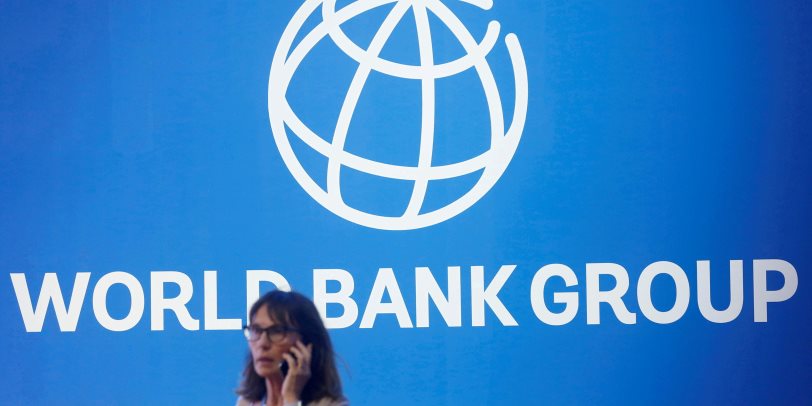World Bank amends Egypt’s GDP outlook, expects GDP to drop to 2.3%
The WB states that the expected decline is due to the ongoing effects of the pandemic, the renewed surge in COVID-19 cases and slow vaccine roll out

The World Bank (WB) has updated its outlook for Egypt’s real GDP growth, stating it is expecting GDP to drop 2.3 percent in the current fiscal year (FY2020/2021), down from 3.6 percent forecasted in FY2019/2020.
The WB states that the expected decline is due to the ongoing effects of the pandemic, the renewed surge in COVID-19 cases and slow vaccine roll out, both locally and internationally.
“If the vaccine is sufficiently deployed by early-2022, Egypt is expected to gradually regain growth momentum during FY2021/22-23, which still means that COVID-19 will have caused at least a 3-year shortfall from pre-pandemic rates.
“The downside scenario for Egypt’s growth over the forecast horizon would happen if COVID-19 vaccination becomes more protracted, or if disease variants cause renewed disruptions,” the report highlighted.
The World Bank also recently updated their outlook for MENA > MENA GDP to rebound by 2.2% in 2021 due to oil recovery
The World Bank updated their report on Egypt’s economic outlook on the occasion of the WB and the International Monetary Fund’s spring meetings.
Its report also expects private consumption in the domestic market to be partially supported by remittance inflows, expanded social protection, lower inflation — which is favorable for households’ purchasing power — as well as monetary easing.
Pre-pandemic labor market trends are now compounded by income losses due to COVID-19, especially among informal workers, and that would lead to an uptick in the poverty rate in the country.
When it comes to the country’s current account deficit to GDP ratio, the report projected it to widen from 3.1 percent in FY2019/2020 to 3.4 percent in FY2020/21, driven mainly by a drop in revenues from key services exports, including tourism and the Suez Canal, before narrowing gradually to around 2.7 percent over the medium term.
The capital and financial account is projected to remain supported mainly by portfolio inflows — including Eurobonds — and external financing. Although, foreign direct investment inflows are projected to decline from 2.1 percent of GDP in FY2019/20 to around 1 percent of GDP in FY2020/21 amid the global economic slowdown and then gradually recover over the medium-term, according to the report.
The report also projected Egypt’s overall budget deficit to GDP ratio to increase to 8.2 percent in FY2020/21 from 8 percent in FY2019/20 owing to the anticipated increase in subsidies, social protection, and public investment, whereas revenues are expected to remain sluggish.
“This would push the government debt to GDP ratio upwards from 87.5 percent at the end of FY2019/20 to above 90 percent of GDP by the end of FY2020/21, before fiscal consolidation — mainly through domestic revenue mobilisation — resumes over the medium-term, notably with the implementation of the recently-approved Medium-Term Revenue Strategy,” the report illustrated.





